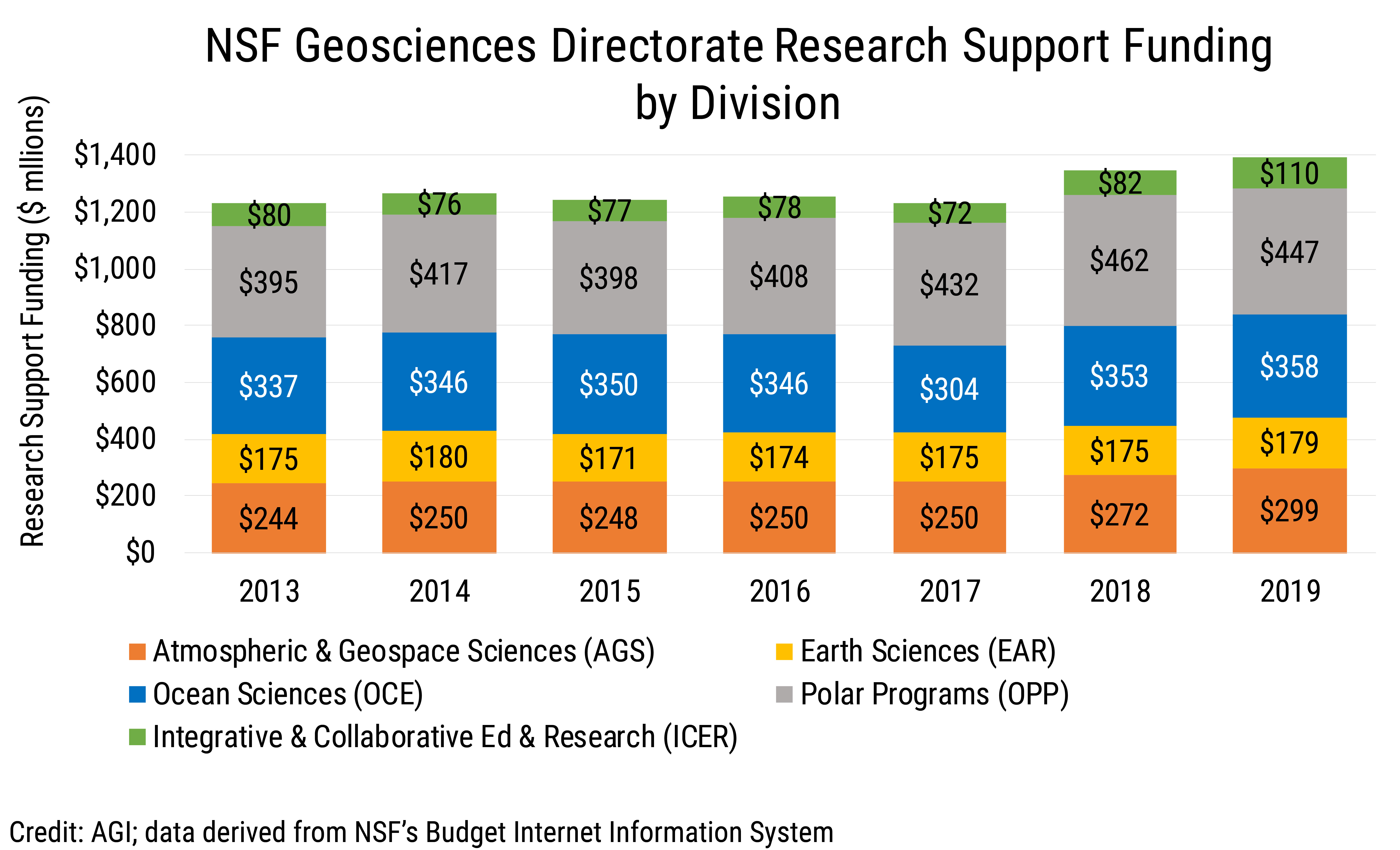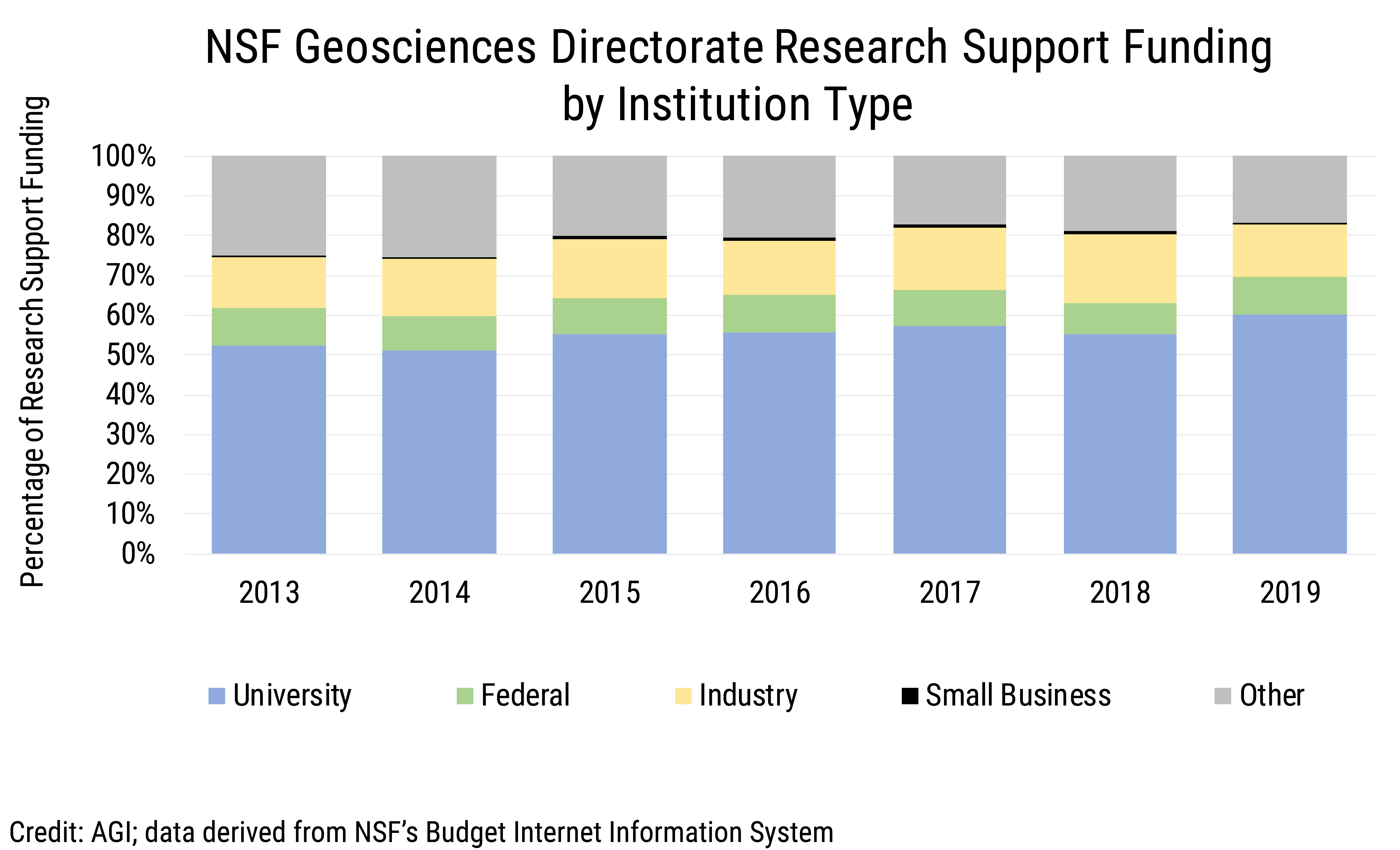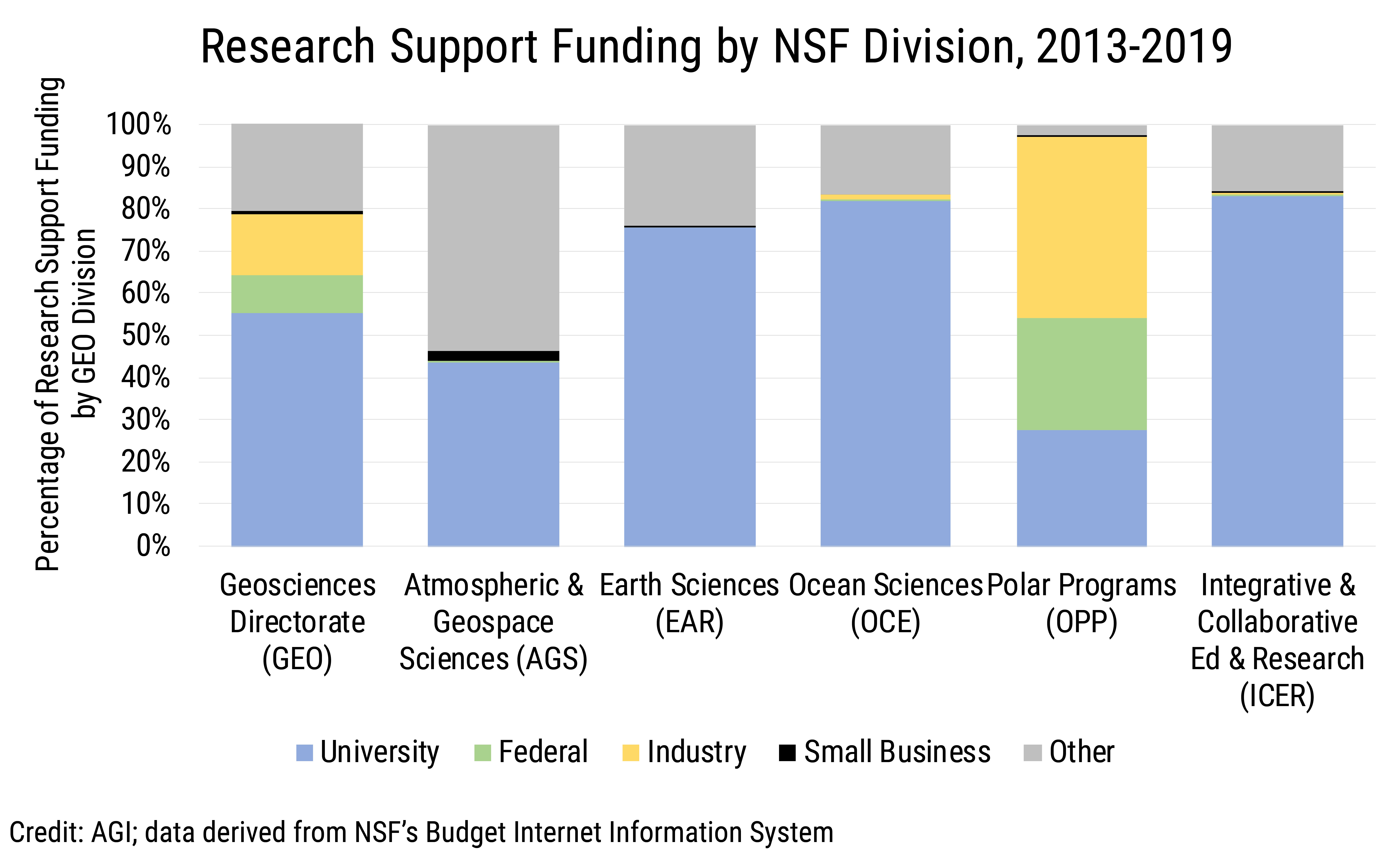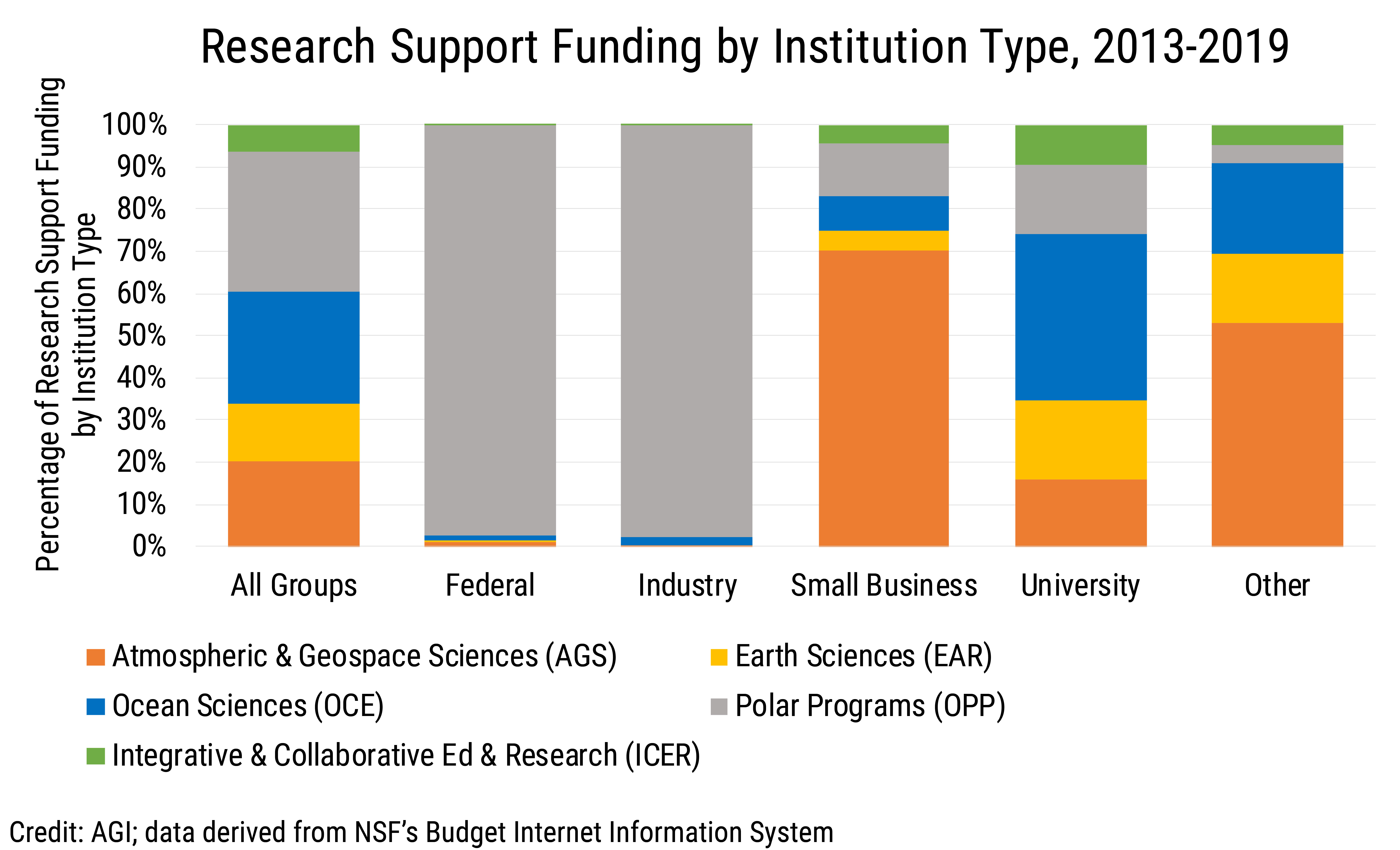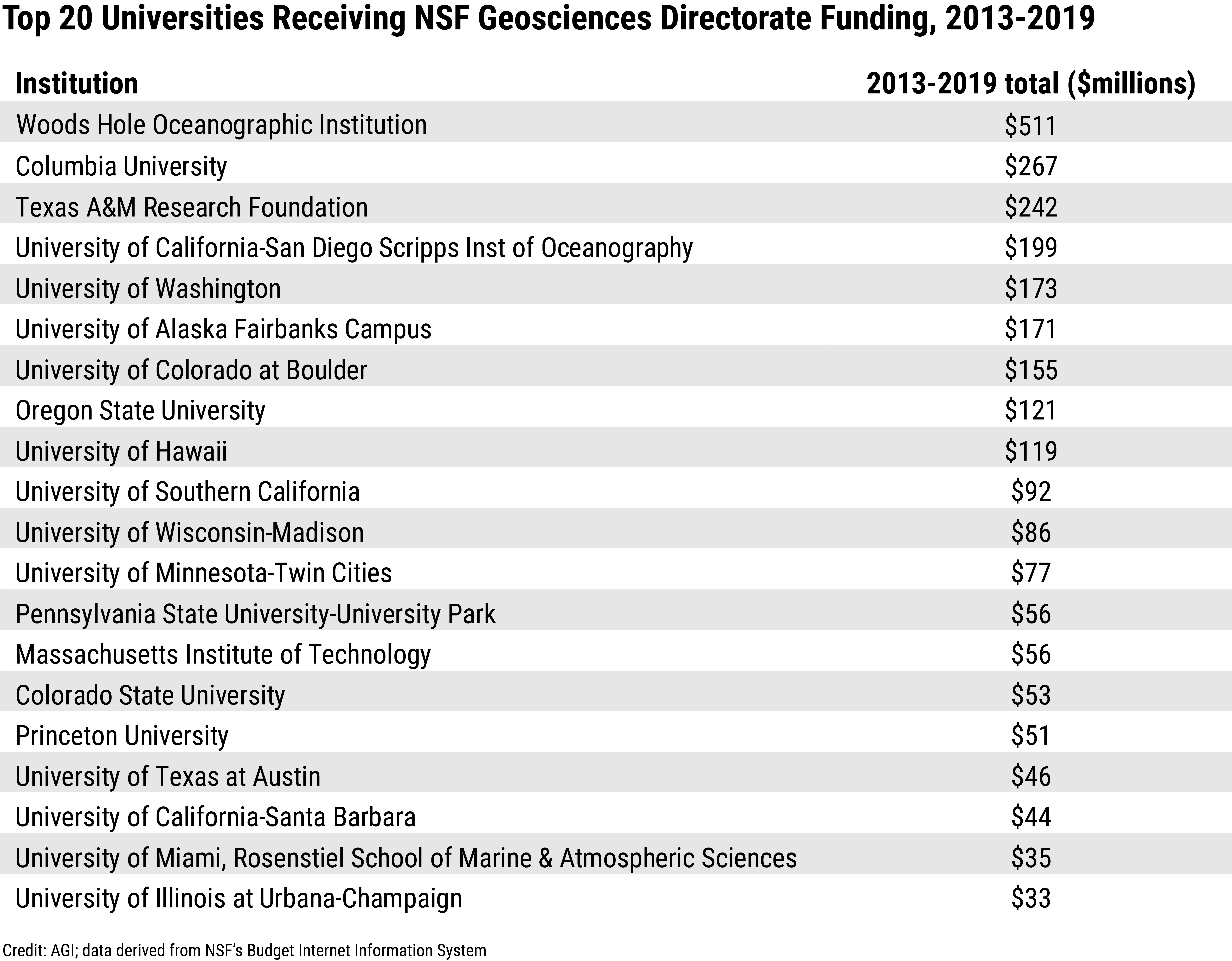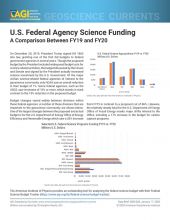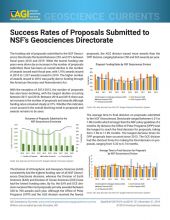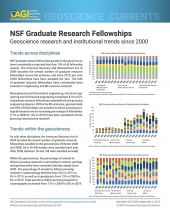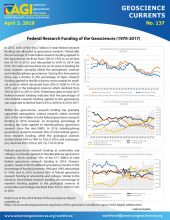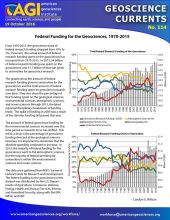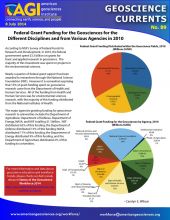Research support funding awarded to U.S. institutions between 2013 and 2019 by the National Science Foundation’s (NSF) Geosciences Directorate (GEO) increased from $1.23 billion in 2013 to $1.39 billion in 2019. The percentage of total research support funding has remained relatively steady for each of the NSF Geosciences Directorate divisions, with approximately 20% of total funding to the Division of Atmospheric and Space Sciences (AGS), 14% to the Division of Earth Sciences (EAR), 27% to the Division of Ocean Sciences (OCE), 33% to the Office of Polar Programs (OPP), and 6% to the Division of Integrative and Collaborative Education and Research (ICER).
Research support funding is applied to research activities that support the overall science and engineering enterprise and those projects important for both the U.S. economy and national security. Funding is awarded through the NSF GEO divisions to universities and colleges, federal government agencies, large corporations or business which are categorized as "industry", small businesses, and non-profit institutions which are categorized as "other".
The percentage of total NSF GEO research support funding awarded to universities and colleges increased from 52% in 2013 to 60% in 2019. Research support funding awarded to federal agencies has remained relatively steady since 2013, holding near 10% and funding awarded to small businesses has remained near 1%. Meanwhile, funding for industry increased from 13% in 2013 to 18% in 2018, then declined to 13% in 2019 while funding for “other” institutions decreased from 25% in 2013 to 17% in 2019.
Total research support funding by institution type between 2013 and 2019 varied by NSF GEO division. Universities and colleges were awarded the highest percentage of funding from ICER (83%), OCE (82%), and EAR (76%), whereas "other" institutions were awarded the highest percentage of funding from AGS (54%) and large corporations were awarded the highest percentage of funding from OPP (43%).
Between 2013 and 2019, the majority of funding to federal agencies has been in support of ongoing research, logistics and operations in Antarctica. Funding has been awarded primarily to the Department of Defense, Department of Interior, Naval Electronics Systems Engineering, the U.S. Coast Guard and AQD. Research support funding to these agencies totaled 89% of all research support funding to federal agencies between 2013 and 2019.
Over 99 percent of research support funding to industry has been awarded to Lockheed Martin and Leidos Innovations Corporation from OPP in support of ongoing research, logistics and operations support in Antarctica. Leidos Innovations Corporation took over Lockheed’s Information Systems and Global Services business in a 2016 merger.
Research support to small businesses comprised a small percentage of NSF GEO total research funding, totaling just over $61.6 million over the 2013-2019 period, and 70% of this funding was awarded by AGS. Nearly two-thirds of small business funding over this period was awarded to the Center for Severe Weather Research, NorthWest Research Associates, Inc., G & A Technical Software, Inc., and Atmospheric and Environmental Research, Inc. primarily in support of atmospheric research.
Research support funding for "other" institutions has been primarily awarded to non-profit institutions. 89% of total funding between 2013 and 2019 was awarded to 5 institutions: University Corporation for Atmospheric Research (UCAR), UNAVCO, the Consortium for Ocean Leadership, the Incorporated Research Institutions for Seismology (IRIS), and SRI International. Funding for UCAR and SRI International was primarily awarded through AGS and funding for UNAVCO and IRIS was primarily awarded through EAR. OCE awarded the majority of research support funding to the Consortium for Ocean Leadership.
Research support funding for universities and colleges has been well distributed across NSF GEO divisions, with the highest percentage of funding (39%) awarded through OCE. Of the $4.97 billion awarded to universities and colleges between 2013 and 2019, 52% was awarded to the following 20 institutions, many of which hold large operational roles in capital intensive research endeavors like oceanography.


